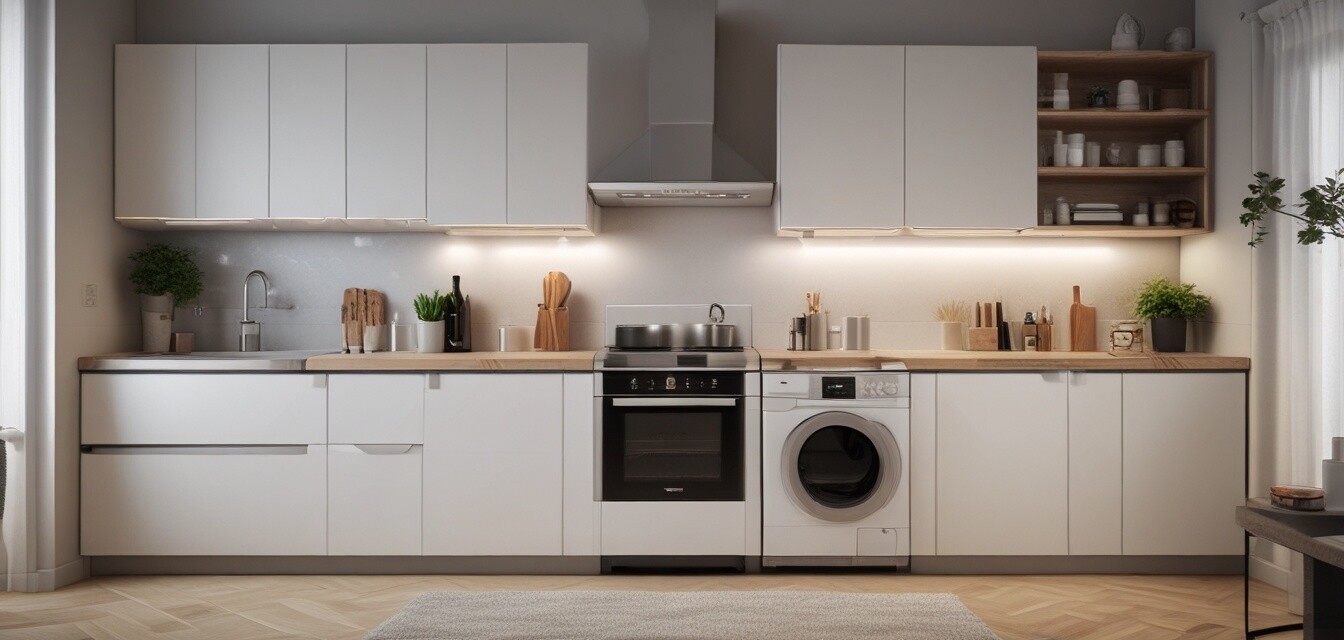
Managing Energy Costs in Rental Properties
- Understanding energy costs is essential for both landlords and tenants.
- Energy-efficient appliances significantly reduce energy consumption.
- Implementing smart practices can lead to substantial savings on bills.
- Regular maintenance of appliances ensures optimal performance and efficiency.
In today’s world, managing energy costs is crucial for both landlords and tenants of rental properties. With rising energy prices, it becomes essential to find efficient ways to keep these costs low while ensuring comfort and convenience. This article provides valuable tips on how to effectively manage and reduce energy costs through the use of energy-efficient appliances and smart practices.
Understanding Energy Costs
Before diving into strategies for managing energy costs, it's important to comprehend what factors contribute to your energy bills. Several aspects can influence your monthly expenses:
| Factor | Description |
|---|---|
| Heating and Cooling | Temperature control is a significant component of energy costs. |
| Appliance Use | The frequency and duration of appliance usage can greatly impact energy consumption. |
| Insulation | Good insulation reduces the strain on heating and cooling systems. |
| Energy Rates | Different providers may offer varying rates; shopping around can lead to savings. |
Benefits of Energy-Efficient Appliances
One of the most effective ways to manage and reduce energy costs in rental properties is to invest in energy-efficient appliances. Here are some key benefits:
- Reduced Energy Consumption: Energy-efficient appliances use less electricity than standard models.
- Cost Savings: Lower utility bills can result from reduced energy usage.
- Environmental Impact: Using less energy contributes to a smaller carbon footprint.
- Increased Property Value: Energy-efficient features can make properties more attractive to potential renters.
Smart Practices for Energy Management
In addition to using energy-efficient appliances, adopting smart practices can further help in managing energy costs. Here are some tips:
-
Regular Maintenance:
Ensure all appliances are cleaned and serviced regularly to maintain efficiency. For instance, clean refrigerator coils and check washing machine hoses for blockages.
-
Utilizing Natural Light:
Encourage tenants to utilize natural light during the day to reduce reliance on artificial lighting.
-
Programmable Thermostats:
Installing programmable thermostats allows for temperature adjustments based on occupancy and time of day, which can save energy.
-
Energy Audits:
Consider conducting energy audits to identify areas where energy loss occurs, guiding improvements.
Tips for Landlords and Tenants
Both landlords and tenants can work together to ensure energy costs are managed effectively. Here are some collaborative strategies:
- Discuss Energy Efficient Upgrades: Landlords can consult tenants about energy efficiency upgrades that would benefit both parties.
- Establish Energy Policies: Set guidelines for reasonable usage and energy conservation.
- Implement Incentives: Landlords can offer rebates for tenants who implement energy savings measures.
- Open Communication: Encourage regular discussions about energy costs and efficient practices.
Frequently Asked Questions
Many individuals have questions regarding energy management in rental properties. Here are some commonly asked questions:
| Question | Answer |
|---|---|
| What are the most energy-efficient appliances? | Look for Energy Star certified appliances, as they are tested for energy efficiency. |
| Can tenants suggest energy upgrades? | Yes, collaboration on energy upgrades is beneficial for everyone involved. |
| How often should appliances be maintained? | Regular maintenance should be done at least once a year for optimal efficiency. |
Conclusion
Managing energy costs in rental properties requires a collaborative effort between landlords and tenants. By utilizing energy-efficient appliances, engaging in smart practices, and having open communication, it is possible to significantly reduce energy bills while ensuring comfort. The shift towards energy efficiency not only saves valuable resources but creates a positive environment for all parties involved.
Pros
- Lower energy bills for both landlords and tenants.
- Improved property value through energy-efficient upgrades.
- Contributes to a greener planet.
- Enhanced tenant satisfaction and retention.
Cons
- Initial cost for upgrading to energy-efficient appliances.
- Not all tenants may prioritize energy savings.
- Requires ongoing maintenance and communication.
Further Reading
If you are interested in learning more about energy efficiency in your rental properties, check out our related articles:
- Tips for choosing energy-efficient appliances
- Understanding air conditioners' efficiency
- Energy-efficient washing machines guide
- Why insulation matters in energy costs
- Latest trends in energy-efficient living